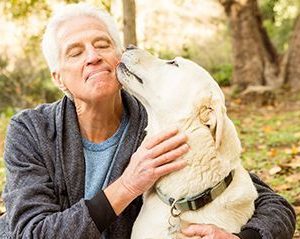- The Best Time of Day to Drink Bone Broth to Maximize Health Benefits
- 8 Ways to Increase Dopamine Naturally
- 7 Best Breads for Maintaining Stable Blood Sugar
- Gelatin vs. Collagen: Which is Best for Skin, Nails, and Joints?
- The Long-Term Effects of Daily Turmeric Supplements on Liver Health
- Could Your Grocery Store Meat Be Causing Recurring UTIs?
- Are You Making This Expensive Thermostat Error This Winter?
- Recognizing the Signs of Hypothyroidism
- 10 Strategies to Overcome Insomnia
- Could Artificial Sweeteners Be Aging the Brain Faster?
Nearly Half of U.S. Veterans Cited ‘Personal Growth’ During Pandemic: Survey

Could there actually be a mental health upside to the ongoing pandemic?
In a word, yes. At least that’s the finding of a new survey, in which roughly four in 10 U.S. military veterans said that the experience has in some ways proven psychologically rewarding.
Nearly 3,100 veterans participated in the survey, which was conducted in two parts, one just before the pandemic and one a year later. Over that time span, roughly 13% said that COVID-19 had triggered post-traumatic stress disorder (PTSD), while 8% reported having contemplated suicide.
But far more — just over 43% — said they had acquired a better appreciation for life and an ability to foster more intimate relationships. They also reported a surge in feelings of personal strength.
Notably, in many instances, those who acknowledged a negative side to the pandemic were also among the larger pool who reported positive aspects, explained study author Robert Pietrzak.
He said that “these positive changes were most prevalent in veterans who screened positive for pandemic-related PTSD symptoms,” with nearly 72% of those affected by PTSD also reporting some degree of post-trauma psychological “growth.”
“We still found that a considerable proportion of veterans are struggling with mental health issues during the pandemic, including PTSD, substance use problems and suicidal thinking,” Pietrzak said. “However, our results suggest that positive psychological changes may be co-occurring with these adverse effects in a substantial proportion of veterans, particularly those who are struggling with COVID-19-related post-traumatic stress symptoms.”
And that mixed-bag reaction is not entirely unexpected, Pietrzak added.
“In light of prior work suggesting that approximately 50% of trauma-exposed individuals experience post-traumatic growth — and that post-traumatic stress symptoms often help to foster psychological growth — we were not surprised by these findings,” he said.
Pietrzak is director of the translational psychiatric epidemiology laboratory at the U.S. Department of Veterans Affairs National Center for Posttraumatic Stress Disorder in West Haven, Conn. His team’s work was published online April 8 in JAMA Network Open.
At an average age of 63, the vast majority of those surveyed were male (92%), and most (80%) were white. The initial survey was conducted between Nov. 18, 2019 and March 8, 2020. The follow-up was completed between Nov. 9, 2020 and Dec. 19, 2020. The World Health Organization declared the outbreak a global pandemic on March 11, 2020.
Pietrzak noted that among all the respondents, 29% said they had a greater appreciation for life, 22% reported developing closer relationships with others and 19% said they felt personally stronger.
Yet those figures shot up dramatically among veterans who also reported pandemic-induced PTSD, rising to 65%, 40% and 36%, respectively, he said.
But when asked if military vets might react differently to the dramatic upheaval of a pandemic than the average individual, Pietrzak said yes.
“There is increasing evidence that having endured prior traumatic life events may help ‘inoculate’ individuals to the deleterious effects of subsequent traumatic events,” he observed. “Military veterans may [also] be better able to move on from adversity by virtue of their training, as well as past experiences in dealing with traumatic events, such as combat,” Pietrzak added.
“But this is also true of seniors in general, who may acquire more adaptive coping skills and greater wisdom in managing stressors over the course of their lives,” he said. “This segment of the population has also largely demonstrated stability in the prevalence of mental disorders during the pandemic, including in our sample, thus underscoring their resilience.”
The latter thought was seconded by James Maddux, a senior scholar with the Center for the Advancement of Well-Being at George Mason University, in Fairfax, Va.
“There is research that shows that as people get older — say, starting around 60 — they report experiencing fewer emotional highs and lows than do younger people, presumably because they have learned to ‘take things in stride.’ Both the good things and the bad things. A greater acceptance of both, you might say. Some might say that this is what wisdom is,” Maddux said.
But are the mental health gains acquired during the pandemic likely to endure after things return to normal?
“Good question, but difficult to answer,” Maddux said. “The evidence on happiness strongly suggests that following very negative or very positive life events, most people return to their pre-event level of happiness and life satisfaction. This suggests to me that most people, being creatures of habit, are going to return to the day-to-day lives they were living pre-pandemic.”
More information
There’s more on the pandemic and mental health at the U.S. Centers for Disease Control and Prevention.
SOURCES: Robert Pietrzak, PhD, MPH, professor, psychiatry, Yale School of Medicine, professor, public health, department of social and behavioral sciences, Yale School of Public Health, and director, translational psychiatric epidemiology laboratory, clinical neurosciences division, U.S. Department of Veterans Affairs National Center for Post-Traumatic Stress Disorder, VA Connecticut Healthcare System, West Haven, Conn.; James Maddux, PhD, university professor emeritus, department of psychology, and senior scholar, Center for the Advancement of Well-Being, George Mason University, Fairfax, Va; JAMA Network Open, April 8, 2021, online
Source: HealthDay
Copyright © 2026 HealthDay. All rights reserved.










